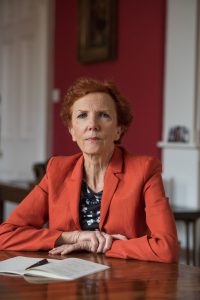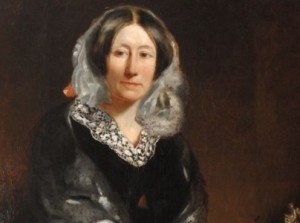By Oxford standards, Somerville is a young college. We are just 140 years old. But there are reminders of our proud heritage everywhere I look – from portraits of inspirational women like Mary Somerville and Ada Lovelace to our beautiful Library.
At a time when Oxford was male-dominated, creating this space for women to think, read and debate was a truly radical act.
I am proud that this university is following in those traditions with the announcement of two new initiatives – Opportunity Oxford and Foundation Oxford – to widen access to students from disadvantaged backgrounds.
Somerville will take part in both. Foundation Oxford will offer places on a one-year pre-degree courses to students with high potential who have experienced some personal disadvantage, or have had their education disrupted.
Opportunity Oxford, which begins in the next admissions cycle, will offer a two-week residential course to help students to bridge the gap from school to university. This will enable students to begin their life at College with greater confidence and a better understanding of university life.
I was delighted to see that my Labour colleague David Lammy – who has been a stern critic of Oxford – has described these initiatives as a “major step forward”.
I believe that we are on the cusp of real change at Oxford, and Somerville will be playing a full part.
As well as supporting the university’s plans, we are pressing ahead with our own work to widen participation. This includes the UNIQ and Universify summer schools and the Demystifying Oxford Day, a day of interview preparation for state school applicants.
This week, we hosted a group of BAME pupils at Somerville, sharing insights into the application process and offering a taste of College life. I encouraged them all to apply here, reminding them that the intimate scale of an Oxford college means we can really support individual students to achieve academic excellence.
For me, widening access to education is about staying true to Somerville’s radical roots. But it is also about preparing for a future in which we will need the brightest minds from all walks of life.
This term, we hosted a brilliant panel debate on the legacy of Margaret Thatcher. The event also commemorated the centenary of the Sex Disqualification (Removal) Act, which enabled women to enter the professions.
It is no secret that I disagree with Lady Thatcher’s politics. But I have great admiration for her achievement as a woman in a male-dominated sphere. Women have come a long way in the past few decades, but there are still significant barriers – particularly the challenge of childcare, which of course affects both women and men.
When our Dorothy Hodgkin won the Nobel Prize, the press could not hide their amazement at her gender. “Oxford housewife wins Nobel,” the Daily Mail declared. Headlines like that are a thing of the past, I believe, but we still have a long way to go.
One of the areas in which diversity is a real challenge is in relation to AI and machine learning. AI is a transformative tool but we have to ensure that the prejudices and inequality in today’s society are not exacerbated by algorithms. We are very fortunate that Steve Roberts, a Professorial Fellow at Somerville is a global expert doing groundbreaking research and he is imbued with the College’s ethos of inclusivity and tolerance.
Inclusivity means that there must be zero tolerance of sexual harassment at College. We already have consent workshops for new students, we have great welfare support in college and we will be participating in a new system across the university whereby a specialist adjudicator will handle cases of sexual harassment and sexual violence on behalf of the proctors.
Oxford in the 21st century is no longer male-dominated. Indeed, in 2017, the university admitted more women than men in its cohort of UK undergraduates. We have a brilliant female vice-chancellor. But I would like to do more to ensure that we have a safe and supportive environment in which all our students, women and men, can achieve their full potential.

